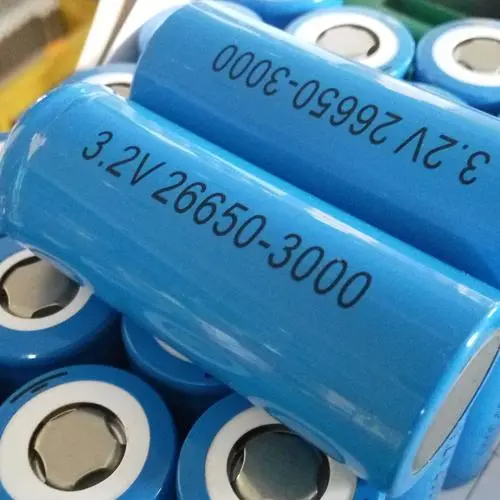As the demand for renewable energy and electric vehicles continues to rise, so does the need for reliable, long-lasting energy storage solutions. LiFePO4 batteries have become a popular choice due to their high energy density, fast charging capabilities, and long lifespan. In this article, we will explore the question on everyone’s mind: How long do LiFePO4 batteries last?
Table of Contents
- Introduction
- What are LiFePO4 batteries?
- Factors affecting LiFePO4 battery lifespan
- Temperature
- Depth of discharge (DoD)
- Charging voltage
- Cycle life
- LiFePO4 vs. other battery chemistries
- Benefits of LiFePO4 batteries
- Common applications of LiFePO4 batteries
- Tips to extend LiFePO4 battery lifespan
- Conclusion
- FAQs
Introduction
LiFePO4 batteries have been gaining popularity over the past few years as reliable and long-lasting energy storage solutions. As the demand for renewable energy and electric vehicles increases, it is important to understand how long these batteries will last and what factors can affect their lifespan.
What are LiFePO4 batteries?
LiFePO4 batteries, also known as lithium iron phosphate batteries, are a type of rechargeable battery that uses lithium iron phosphate as the cathode material. These batteries have a high energy density, which means they can store a large amount of energy in a small space.
Factors affecting LiFePO4 battery lifespan
Several factors can affect the lifespan of a LiFePO4 battery.
Temperature
High temperatures can significantly reduce the lifespan of LiFePO4 batteries. In general, the optimal operating temperature for these batteries is between 15°C to 35°C. Exposure to temperatures above 60°C can cause irreversible damage to the battery and shorten its lifespan.
Depth of discharge (DoD)
The depth of discharge (DoD) is the percentage of the battery’s capacity that has been discharged. The higher the DoD, the shorter the battery’s lifespan. For LiFePO4 batteries, it is recommended to keep the DoD between 20% to 80% to maximize their lifespan.
Charging voltage
The charging voltage can also affect the lifespan of LiFePO4 batteries. Overcharging can cause the battery to overheat and shorten its lifespan while undercharging can lead to a capacity loss over time. It is important to use a charger that is specifically designed for LiFePO4 batteries and follow the manufacturer’s recommended charging parameters.
Cycle life
The cycle life of a battery refers to the number of charge and discharge cycles it can undergo before its capacity drops below a certain threshold. LiFePO4 batteries have a long cycle life, typically ranging from 2000 to 5000 cycles, depending on the battery’s quality and usage.
LiFePO4 vs. other battery chemistries
LiFePO4 batteries have several advantages over other battery chemistries, such as:
- Higher energy density than lead-acid batteries
- Safer and less prone to thermal runaway than lithium-ion batteries
- Longer lifespan than most other battery chemistries
Benefits of LiFePO4 batteries
Some of the benefits of LiFePO4 batteries include:
- Long lifespan
- High energy density
- Fast charging capabilities
- Low self-discharge rate
- Wide operating temperature range
Common applications of LiFePO4 batteries
LiFePO4 batteries are used in a variety of applications, including:
- Electric vehicles
- Renewable energy storage systems
- Uninterruptible power supply (UPS)
- Marine and RV applications
- Portable electronics
Tips to extend LiFePO4 battery lifespan
Here are some tips to extend the lifespan of your LiFePO4 batteries:
- Keep the battery in a cool, dry place to avoid exposure to high temperatures
- Avoid overcharging or undercharging the battery
- Use a charger specifically designed for LiFePO4 batteries and follow the manufacturer’s recommended charging parameters
- Keep the depth of discharge (DoD) between 20% to 80%
- Avoid using the battery in extreme temperatures, as this can cause irreversible damage
- Regularly maintain and inspect the battery to ensure proper functioning
Conclusion
In conclusion, LiFePO4 batteries are a reliable and long-lasting energy storage solution. Their lifespan depends on several factors, including temperature, depth of discharge, charging voltage, and cycle life. By following the tips mentioned above, you can extend the lifespan of your LiFePO4 batteries and maximize their performance.
FAQs
- Are LiFePO4 batteries better than lithium-ion batteries? LiFePO4 batteries have several advantages over lithium-ion batteries, such as safety, long lifespan, and higher tolerance for high temperatures. However, each battery chemistry has its own strengths and weaknesses, and the choice depends on the specific application.
- How many cycles can a LiFePO4 battery undergo? LiFePO4 batteries have a long cycle life, typically ranging from 2000 to 5000 cycles, depending on the battery’s quality and usage.
- Can LiFePO4 batteries be charged with a regular charger? No, LiFePO4 batteries require a charger specifically designed for this chemistry. Using a regular charger can cause overcharging or undercharging, which can shorten the battery’s lifespan.
- How long do LiFePO4 batteries last in electric vehicles? The lifespan of LiFePO4 batteries in electric vehicles depends on several factors, such as usage, temperature, and charging habits. On average, these batteries can last between 5 to 15 years.
- Are LiFePO4 batteries environmentally friendly? LiFePO4 batteries are considered more environmentally friendly than other battery chemistries, such as lead-acid and lithium-ion. They are non-toxic and do not contain heavy metals, making them easier to recycle.
